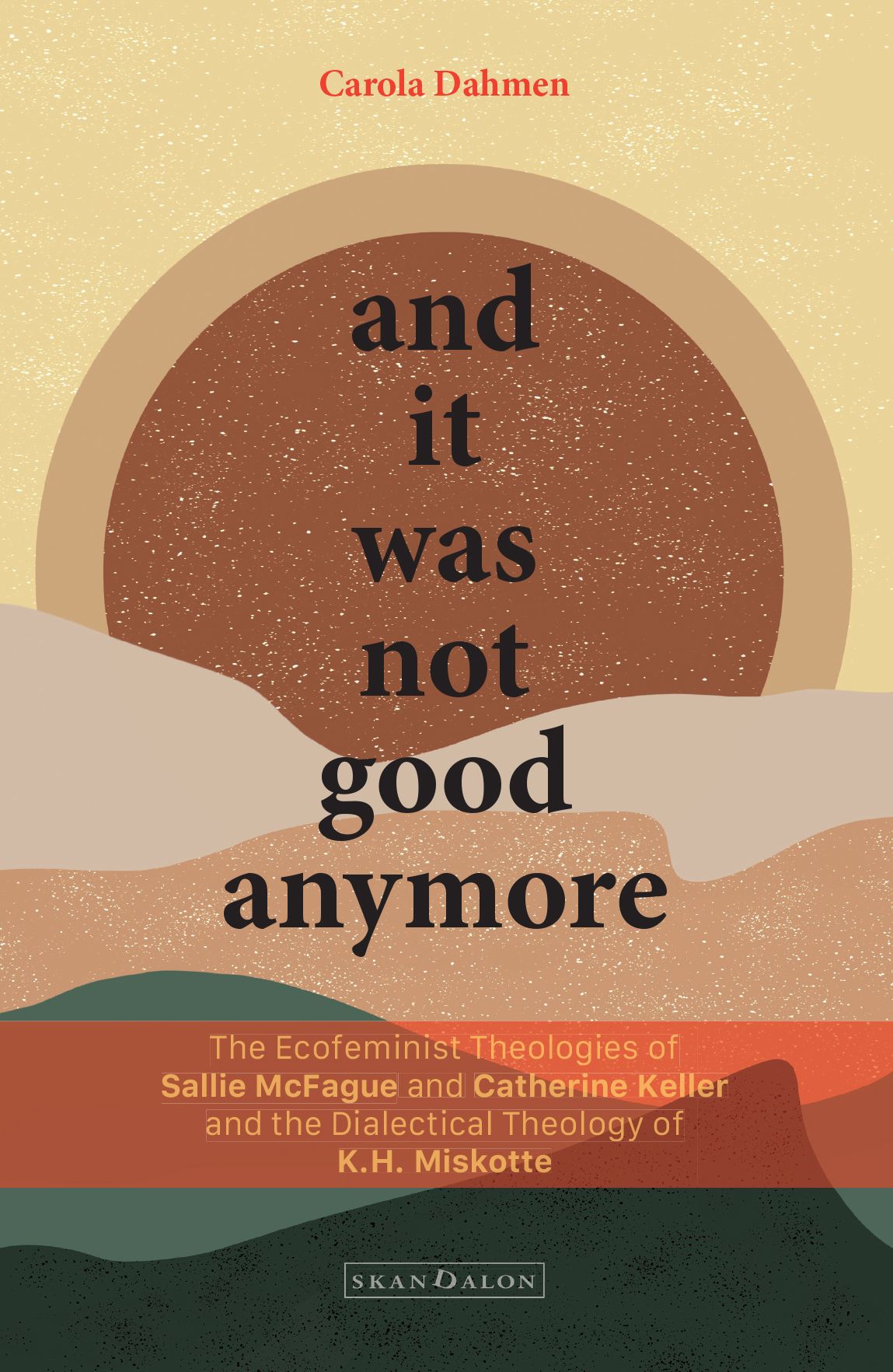Carola Dahmen
And it was not good anymore
The ecofeminist theologies of Sallie McFague and Catherine Keller are seemingly opposed to the dialectical theology of Kornelis Heiko Miskotte.

A Word From The Author
Carola Dahmen, born in Wiesbaden, Germany in 1985, has a diverse background that spans theology and psychology. After completing her secondary education at Mosbacher Berg High School in Wiesbaden, she embarked on a journey of service and learning.
- Volunteer Work: Carola dedicated a year to volunteering with ASF (Aktion Sühnezeichen Friedensdienste) at a daycare center for people with mental disabilities in Zoersel, Belgium. This experience shaped her compassionate approach to life and community.
- Academic Pursuits: Carola’s academic journey led her to Leiden University, where she studied theology and psychology. In 2010, she earned her master’s degree in religious studies, specializing in New Testament research related to healing stories within the context of ancient medicine.
- Ministerial Path: Carola’s pursued a Master’s degree in divinity from PThU (Protestant Theological University). Ordained as a minister in the Protestant Church in the Netherlands in 2012, she served the communities of Berkenwoude and Oostzaan and is currently a minister in Boornbergum-Kortehemmen.
- Psychological Insight: In 2015, Carola expanded her expertise by completing a master’s degree in social and organizational psychology at Leiden University. Her understanding of human behavior and group dynamics informs her ministry and research.
- PhD Journey: From 2018 until 2024, Carola engaged in rigorous academic exploration as an external PhD candidate at PThU in Amsterdam.
- Personal Life: Carola shares her life with Frederik, and together they raise their daughter, Francisca, in Boornbergum, Friesland.
Carola Dahmen’s multifaceted background reflects her dedication to faith, community, and scholarly inquiry.
What people are saying
I think Dahmen has written a clever dissertation. She not only succeeds in giving a meticulous and clear account of the thinking of three complex theologians, but also in fruitfully bringing the ecofeminist thinking of McFague and Keller into conversation with the theology of Miskotte. She shows theology new paths. We must move away from thinking in which the experience of ‘seven tick men’ is normative. We share our creation with all people, animals, plants, mountains, rivers and the sea. Dahmen reminds us that privileged people, like her and me, bear a special responsibility. God calls us to stand up against the exploitation of God’s creation.
What should theology bring in our time of an ecological crisis that demolishes the more-than-human nature? We don’t need any theological soothing of the crisis, but neither do we need theology to phrase new ideologies, which bring subtle metaphors like body and nature to new absolutes. In her fascinating PhD dissertation Carola Dahmen manages to bring forward a positive and ideology-critical theological stance. She translates a mystical clinge to nature as she uncovers in Miskotte, strengthened and sieved through dialectical theology, as an instrument for ecofeminist theology. Theology may forge the force to lament, resist, and rebuke the injustice done to nature, both human and more-than-human. It is up to us to live this theology, for it is not good anymore.
Driven by her love for nature, her heartfelt concern about the consequences of climate change, and a prophetic anger in the face of social injustice resulting from the ecological crisis, Carola Dahmen has written a highly urgent and theologically well-founded dissertation. She makes clear how the ecological crisis is – and should be! – a theological crisis as well. Facing the ecological crisis, struggling with the God of life is not only inescapable but perhaps even required to open the way for hopeful transformation. Apart from a much-needed contribution to the field of ecofeminist theology, for me as a minister, this dissertation is also a stimulating challenge to rethink how I speak about the relationship between God and the more-than-human nature. No sermon about how the Word became flesh will ever sound the same again.
This dissertation is of burning topicality, which is immediately expressed in the title fiercely and sharply: And it was not good anymore. Where God could still say after each day of creation that He saw it was good, Carola Dahmen can no longer say that today. The book is written with crystal clarity and is exciting to read. It is very captivating and original to bring the ecofeminists into critical conversation with none other than Heiko Miskotte and, on the sidelines, with Barth, Deurloo, and the Amsterdam School. Does the resistance to natural theology blind us to the dangers threatening more-than-human nature? How can Miskotte's euphoria about nature be interpreted in this context? I read the book with pleasure and learned a lot from it, although I sometimes think: don't we know anyway that we must be careful and treat more-than-human nature with care? Do I need theology to see the urgency of this?
About The Book
The ecofeminist theologies of Sallie McFague and Catherine Keller are seemingly in opposition to the dialectical theology of Kornelis Heiko Miskotte. In this study, their theologies are engaged in a staged discussion to address the question of how we might think about the relationship between God and the more-than-human nature of our time. An ecofeminist theology that recognizes God’s alterity in the intimacy of the flesh offers a prophetic way to deal with the threat to life on earth. McFague and Keller propose an image of God that is bodily and immanently connected to the more-than-human nature. Such an image of God, which goes beyond the anthropocentric approach, is significant in our context of ecological crisis. Similar to his theological friend Karl Barth, Miskotte rejected natural theology but was also known for his intense love of ‘nature’ and his unwavering appreciation of earthly life. Although he thought of God as completely different, Miskotte believed that God is also intimately present in creation.”


